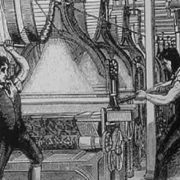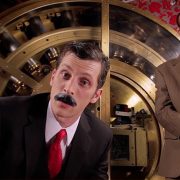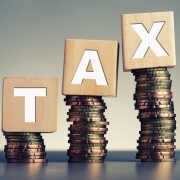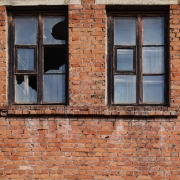In the wake of natural disasters or other acts of God, mainstream economists love to perpetuate the myth that unnecessary destruction is somehow good for the national economy.
As hurricane season hit the United States earlier this fall, the same typical accusations were made. Economists and other pundits were quick to suggest that while devastating, hurricanes Harvey and Irma were somehow good for the economy.
In late August and early September, the usual headlines sprung up claiming that “Devastating Storm May Actually Boost US GDP.” But worse than this false rhetoric is the fact that many do fall prey to this line of thinking and begin to subscribe to it.
And while classical liberals and Austrians will be the first to tell you that “creative destruction” is an integral part of the market process, this is definitely not what they had in mind.
Luckily, 19th-century French economist Frédéric Bastiat predicted this situation nearly two centuries ago when he wrote his great parable, the broken window fallacy.
What Is Seen
When economists falsely predict economic stimulation after a disaster leaves wreckage in its wake, they are only seeing one very small portion of the problem. As Bastiat points out in his What Is Seen and What is Not Seen:
“There is only one difference between a bad economist and a good one: the bad economist confines himself to the visible effect; the good economist takes into account both the effect that can be seen and those effects that must be foreseen.”
What is obviously seen after a disaster, is an economic boom arising in specific industries during the aftermath of a horrible storm. Since storms create massive wreckage in need of repair, there will almost certainly be an influx in the economy when it comes to corresponding industries. And, to play to Bastiat’s parable, one such example is the glass industry.
Since many windows will have been broken in both residential neighborhoods and metropolitan areas, it is certain that these disasters will benefit the glass industry. And since there is a boost in that one particular area, economists falsely believe that this boom will trickle down and positively impact the entire economy as a whole. But this is simply not the case.
You cannot observe a net positive in one area without also taking note of how this impacts other sectors as well.
As Bastiat writes:
“In the economic sphere an act, a habit, an institution, a law produces not only one effect, but a series of effects. Of these effects, the first alone is immediate; it appears simultaneously with its cause; it is seen. The other effects emerge only subsequently; they are not seen; we are fortunate if we foresee them.”
Yet, many scoff at this warning and believe that the obvious consequences are all that matter.
Describing a similar scenario Bastiat writes:
“Have you ever been witness to the fury of that solid citizen, James Goodfellow, when his incorrigible son has happened to break a pane of glass? If you have been present at this spectacle, certainly you must also have observed that the onlookers, even if there are as many as thirty of them, seem with one accord to offer the unfortunate owner the selfsame consolation: “It’s an ill wind that blows nobody some good. Such accidents keep industry going. Everybody has to make a living. What would become of the glaziers if no one ever broke a window?”
But what of these unseen consequences? Well, many of these mainstream economists neglect to see beyond the obvious.
What Is Not Seen
Continuing to explain why so many economists comprehend this situation incorrectly, Bastiat writes:
“Suppose that it will cost six francs to repair the damage. If you mean that the accident gives six francs’ worth of encouragement to the aforesaid industry, I agree. I do not contest it in any way; your reasoning is correct. The glazier will come, do his job, receive six francs, congratulate himself, and bless in his heart the careless child. That is what is seen.”
But in the instance of storms, the individual families or businesses that now have to buy new panes of glass are spending valuable resources to rebuild what existed only a few days ago. They are essentially double spending. Had a storm or disaster not hit, that money could have been spent elsewhere. So these mainstream economists fail to account for consequences that were initially unseen.
Bastiat writes:
“But if, by way of deduction, you conclude, as happens only too often, that it is good to break windows, that it helps to circulate money, that it results in encouraging industry in general, I am obliged to cry out: That will never do! Your theory stops at what is seen. It does not take account of what is not seen.”
If that money was, instead used to pay for something else in a different sector, economic stimulation still would have occurred. However, it would not have come at the expense of something that was already paid for, like the initial window prior to the storm. Bastiat comments on this as well, saying:
“It is not seen that, since our citizen has spent six francs for one thing, he will not be able to spend them for another. It is not seen that if he had not had a windowpane to replace, he would have replaced, for example, his worn-out shoes or added another book to his library. In brief, he would have put his six francs to some use or other for which he will not now have them.”
Why Does this Myth Survive?
It is far easier to explain to people what can easily be seen in front of their eyes. The money spent on reconstruction immediately after a storm, for example, is very tangible. Many are experiencing these initial “booms” in corresponding sectors.
But trying to Explain what is unseen is much more of a feat. But without the consideration of both the seen and the unseen the entire economic picture is not complete.
“And if we were to take into consideration what is not seen, because it is a negative factor, as well as what is seen, because it is a positive factor, we should understand that there is no benefit to industry in general or to national employment as a whole, whether windows are broken or not broken.”
He continues:
“Two very different masters teach him this lesson: experience and foresight. Experience teaches efficaciously but brutally. It instructs us in all the effects of an act by making us feel them, and we cannot fail to learn eventually, from having been burned ourselves, that fire burns. I should prefer, in so far as possible, to replace this rude teacher with one more gentle: foresight…”
Both these two “masters” as Bastiat calls them, are vital to understanding the economy. You must account for both. Otherwise, this fallacy continues to be spread as if it is economic doctrine, just as it does each time hurricane season rolls around.
Bastiat sums up his argument by writing:
“From which, by generalizing, we arrive at this unexpected conclusion: “Society loses the value of objects unnecessarily destroyed,” and at this aphorism, which will make the hair of the protectionists stand on end: “To break, to destroy, to dissipate is not to encourage national employment,” or more briefly: ‘Destruction is not profitable.”










